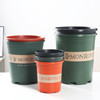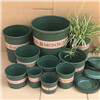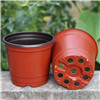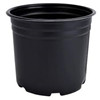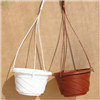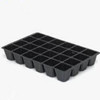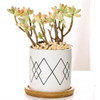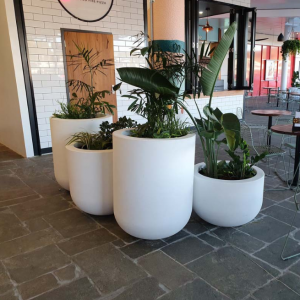Introduction: In the quest for a greener future, gardeners and landscapers are turning to sustainable solutions to minimize their environmental impact. Non-woven flower pots, with their eco-friendly design and impressive benefits, are paving the way for a more environmentally conscious approach to gardening and landscaping. In this blog, we explore the role of non-woven flower pots in creating a greener future for horticulture enthusiasts and nature lovers alike.
- Reducing Plastic Waste: One of the most significant contributions of non-woven flower pots to a greener future is their role in reducing plastic waste. Traditional plastic pots often end up in landfills, contributing to pollution and environmental degradation. Non-woven flower pots, being biodegradable, break down naturally, leaving no harmful residue behind.
- Enhancing Soil Health: As non-woven flower pots biodegrade, they enrich the soil with organic matter. This natural decomposition process contributes to improving soil structure, nutrient content, and microbial activity. Healthy soil is the foundation for thriving plants, creating a sustainable ecosystem within gardens and landscapes.
- Encouraging Sustainable Gardening Practices: The use of non-woven flower pots aligns with sustainable gardening practices, focusing on conserving resources and reducing waste. By choosing biodegradable pots, gardeners and landscapers demonstrate their commitment to responsible stewardship of the environment.
- Supporting Biodiversity: A greener future for gardening and landscaping involves supporting biodiversity and preserving native plant species. Non-woven flower pots, with their natural materials, blend seamlessly into the environment, encouraging the growth of diverse plant species that attract beneficial insects and wildlife.
- Educating and Inspiring Others: Embracing non-woven flower pots serves as an opportunity to educate and inspire others about sustainable gardening practices. By showcasing the benefits of these eco-friendly pots, gardeners and landscapers can encourage a wider audience to adopt greener approaches in their own gardening endeavors.
Conclusion: Non-woven flower pots play a pivotal role in shaping a greener future for gardening and landscaping. By reducing plastic waste, enhancing soil health, encouraging sustainable practices, supporting biodiversity, and inspiring others, these eco-friendly pots pave the way for a more environmentally conscious approach to horticulture. As gardeners and landscapers embrace non-woven flower pots, they become champions of sustainable gardening practices and advocates for a healthier and more sustainable planet.


